Efficacy of oil and gas produced water as a dust suppressant by Audrey M. Stallwortha, Eric H. Chase, Bonnie McDevitta, Katherine K. Marakc, Miriam Arak Freedman, Robin Taylor Wilson, William D. Burgos, and Nathaniel R. Warner, Dec 21, 2021, Science of the Total Environment
https://doi.org/10.1016/j.scitotenv.2021.149347
Highlights
Dust suppression efficacy of all OGPW was less than commercial products.•
Sodium absorption ratio (SAR) and total dissolved solids (TDS) predict efficacy.•
OGPW with low SAR and high TDS performed best as dust suppressants.•
OGPW treated roadways lost dust-suppression efficacy following rain events.
Abstract
The effectiveness of oil and gas produced water (OGPW) applied to unpaved roads to reduce particulate matter (PM10) generation has not been well-characterized. Here we quantify the efficacy of OGPW compared to commercial and alternative byproducts as dust suppressants applied to unpaved roads and estimate efficacy of a dust suppressant extrapolated from both lab experiments and published data for OGPW across U.S. states. Both treated and untreated OGPW, simulated brines, and commercial dust suppressants were characterized by major and trace element composition and then applied to road aggregate in the laboratory. PM10 generation after treatment was quantified, both before and after simulated rain events to assess the need for multiple applications. We found the dust suppression efficacy of all OGPW to be less than commercial products and alternative byproducts such as waste soybean oil. In addition, OGPW lost efficacy following simulated rain events, which would require repeated applications of OGPW to maintain dust suppression. The dust suppression efficacy of OGPW can be estimated based on two chemical measurements, the sodium absorption ratio (SAR) and the total dissolved solids (TDS). OGPW with the lowest SAR and highest TDS performed best as dust suppressants while high SAR and lower TDS led to greater dust generation.
New Penn State Study Shows Road Dumping Oil & Gas Drilling Wastewater Has Little Dust Suppression Benefit, Contains Pollutants Harmful To Human Health, Agriculture, Aquatic Life by David E. Hess, Aug 16, 2021, PA Environment Digest Blog

A new study by Penn State researchers to be published in the journal Science of The Total Environment found oil and gas drilling wastewater is far less effective than commercial products at suppressing dust, is easily washed off roadways into nearby streams and fields and contains pollutants that can negatively affect human health, agriculture and aquatic life.
The authors of the study include Dr. William D. Burgos from Penn State’s Department of Civil and Environmental Engineering who provided the conceptualization and methodology and the formal analysis for the study, including validation, supervision, writing, reviewing and editing the article.
Researchers tested the effectiveness of oil and gas drilling production wastewater (OGPW) from several states against three commercially available dust suppressant products including waste soybean oil, an EnviroKleen product approved by the PA Center for Dirt And Gravel Roads and water treatment plant softening sludge.
Oil and gas wastewater was collected from eight different conventional and unconventional wells in Pennsylvania, Ohio and Wyoming.
The wastewater and alternative products were tested in a laboratory setting on simulated dirt and gravel roads and then subjected to small simulated rain events.
Among the findings of the study were–
— OGPW Was Orders Of Magnitude LESS Effective At Controlling Dust: Both the soybean oil and EnviroKleen product performed “three orders of magnitude better” than the best performing oil and gas wastewater samples. (page 7, Section 4.1)
— OGPW Application For Dust Suppression May Not Be Beneficial: Dust suppressants used commercially, such as calcium chloride, magnesium chloride and EnviroKleen, as well as the alternative soybean oil each outperformed all oil and gas drilling wastewaters tested in this study, “which may indicate drilling wastewater application for dust suppression may not be beneficial.” (page 8, Section 4.2)
— OGPW Lost Efficacy More Quickly Than All Suppressants After Small Rain Events: The study said even after small simulated rain events all suppressants lost efficacy, but oil and gas drilling wastewater “lost efficacy more quickly and to a greater degree than” the alternatives. (page 8, Section 4.3)
— OGPW Lost Nearly All Sodium, Magnesium, Calcium After Small Rain Events: OGPW testing also found that small simulated rain events leached out all sodium, magnesium and calcium from the road aggregate in runoff making it the most susceptible to these losses than the other alternatives. (page 8, Section 4.3)
— OGPW Contains Radioactive Radium Above Regulatory Standards: Oil and gas drilling wastewater “contains levels of radium above regulatory standards, such as the industrial discharge limit of 60pCi/L.” (page 8, Section 4.4)
–– Pollutants In OGPW Raise Concerns Over Safety Of Water Resources After Application: The article noted “additional contaminants found in OGPW, i.e. lead, arsenic, radium, may accumulate on roadways and in groundwater, which raises concerns about the safety of water resources post-application.” “Indeed, brines that are used for road maintenance activities such as deicing and dust suppression raise concerns about increasing the salinity of proximate water resources, because once applied, much of the salt becomes mobile and travels offsite with surface and groundwater which has negative consequences for agriculture, infrastructure and aquatic life.” (Page 8, Section 4.5)
— Soybean Oil Most Promising Alternative: The article said soybean oil is perhaps the most promising alternative product to oil and gas drilling wastewater because it worked as well as a commercial product and could likely be obtained at a lower price, although other impacts from its application were not evaluated in this study. (page 7, Section 4.1)
Conclusion Of The Study
“Road spreading of OGPW is an established practice that is generating health and efficacy concerns as the practice gains more attention.
“Compared to commercial counterparts, calcium and magnesium chlorides, the presence of sodium in an OGPW can render an OGPW less effective as a dust suppressant.
“None of the OGPWs assessed [in this study] performed as well as the commercial analogs, CaCl2 or MgCl2.
“If the justification for using OGPW is equivalency with commercial counterparts, evidence points to far less efficacy.”
One other helpful aspect of this new Penn State study is footnotes and references in the journal article contain links to many other studies of oil and gas drilling wastewater that support the conclusions in the study and document the harmful nature of pollutants in the wastewater.
Click Here for a copy of the full journal article. Dr. William D. Burgos can be contacted by sending email to: email hidden; JavaScript is required or calling 814-863-0578.
Click Here to see photos of typical road dumping of oil and gas drilling wastewater. They were taken by the vac truck operator. Read more here.
Importance Of This Study
DCED’s PA Grade Crude [Oil] Development Advisory Council is scheduled to meet August 19 to discuss the issue of road dumping conventional oil and gas drilling wastewater and the status of Penn State research on the issue. Read more here.
The results of this new Penn State study show clearly that road dumping of drilling wastewater is just that– dumping– with little effective dust suppression benefit.
A second new study released last week from researchers from the Technical University Of Munich say there is a clear link between exposure to airborne or waterborne particles and several health conditions through the breakdown of the mucosal system, the body’s first line of defense from infections and toxins. Read more here.
Residents where road dumping is occurring in Pennsylvania have complained for years of a variety of health-related problems. Read more here.
Other recent research by Penn State and others has shown the road dumping of wastewater from oil and gas wells as a dust suppressant is not only NOT effective, but contaminates the roads and wash sediment and pollutants into nearby streams.
There has also been other research pointing to not only environmental but also health impacts from using oil and gas well wastewater for dust control. Click Here for a summary.
Another recent study found that between 1991 and 2017, 240.4 million gallons of wastewater from conventional oil and gas wells were applied to roads, according to DEP records.
In October 2016, DEP adopted regulations prohibiting the road dumping of production wastewater from unconventional oil and gas wells for dust suppression, anti-icing and de-icing (Chapter 78a, Section 70), but did not address wastewater from conventional wells.
As a result of a 2017 appeal to the Environmental Hearing Board, DEP’s Oil and Gas Program imposed a moratorium on all road dumping of wastewater from wells in the state in 2018.
However, the road dumping of wastewater from oil and gas wells is still authorized under the DEP Waste Management Program under a co-product determination which allows the use of waste that has similar properties to commercial products as if it was that product.
This new Penn State study very clearly says oil and gas drilling wastewater is at least THREE orders of magnitude less effective at dust suppression than other commercial alternatives, which blows a big hole in the “co-product” determinations made by DEP over the years.
The road dumping of conventional drilling wastewater is pervasive and widespread in oil and gas areas in Pennsylvania and as a result DEP has an extremely difficult time taking enforcement actions to shutdown illegal operations. Read more here.
The 2019 Annual Report of the Crude (Oil) Development Advisory Council contains a special section devoted to the issue of oil and gas production water issues, including the goal of reinstating the road dumping program, leaving no doubt about their political intentions.
The conventional drillers have also supported legislation– House Bill 1144 (Causer-R-Cameron)– that would legalize the road dumping of drilling wastewater. House Republicans passed the bill in May and it is now in the Senate. Read more here.
Senate Republicans have their own version of the bill that would do the same thing– Senate Bill 534 (Hutchinson-R-Venango)– but it has not yet been considered.
Related Article This Week:
— PA Grade Crude [Oil] Development Advisory Council: Meets Aug. 19 To Hear Update On Penn State Study Of Road Dumping Conventional Drilling Wastewater, Continue Review Of Draft Conventional Drilling Regs.
— The Independent: Pollution Damaging Humans’ First Line Of Defense Against Infections, Toxins– The Mucosal System, Review Finds [Helpful in providing a link between road dumping of drilling wastewater and other pollution]
NewsClips:
— Altoona Mirror Editorial: Natural Gas Drillers Put Their Industry Over Your Health
— SW PA Environmental Health Project: Siri Lawson, Warren County, And Her Story Of Dealing With Health Impacts From Drilling Operation, Wastes – Part 1
— SW PA Environmental Health Project: Siri Lawson, Warren County, And Road Dumping Of Drilling Wastewater – Part 2
— Public Herald: Ohio Operates A Radioactive Industry Off The Record From PA, Ohio Oil & Gas Drilling Waste – Part 1
— Public Herald: Investigation Uncovers Ohio Is ‘Illegally’ Building Radioactive Mountains, Affecting 26 Waterways From PA, Ohio Oil & Gas Drilling Waste – Part 2
— Sen. Muth, Rep. Innamorato: Call On DEP To Close Loopholes In Regulation Of Oil & Gas Industry Waste As Hazardous Waste
– Ohio Capital Journal: Feds And States Not Taking Radioactivity From Fracking Seriously, Environmental Group Says
— NRDC: Regulation Is Too Weak For Radioactive Oil And Gas Drilling Wastewater Other Waste
Related Articles:
— Dangers Posed By Oil & Gas Drilling Wastes, Abandoned Wells + Siri Lawson’s Story From Warren County

Refer also to:
Encana dumping its waste on foodland just outside my community, Rosebud Alberta:
2011:
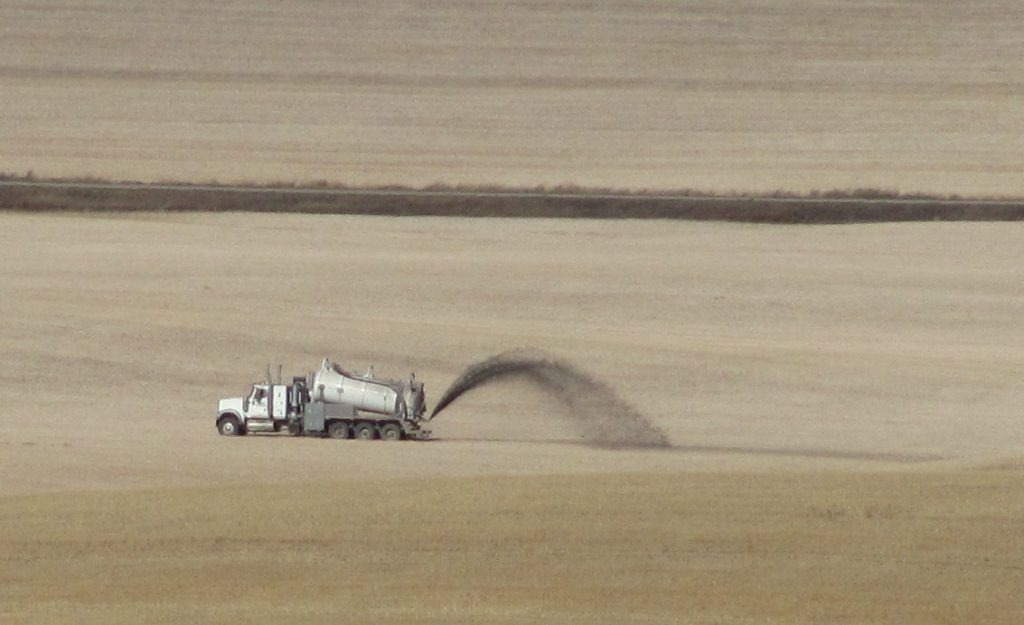
2012 (Encana dumped their waste in the same location. This year, company contractors observed me observing and filming them, and thereafter Encana chose locations not visible from public roads to do their dumping):
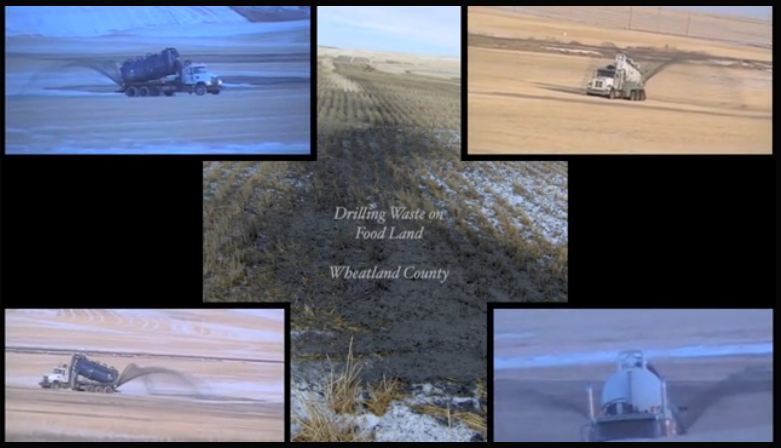
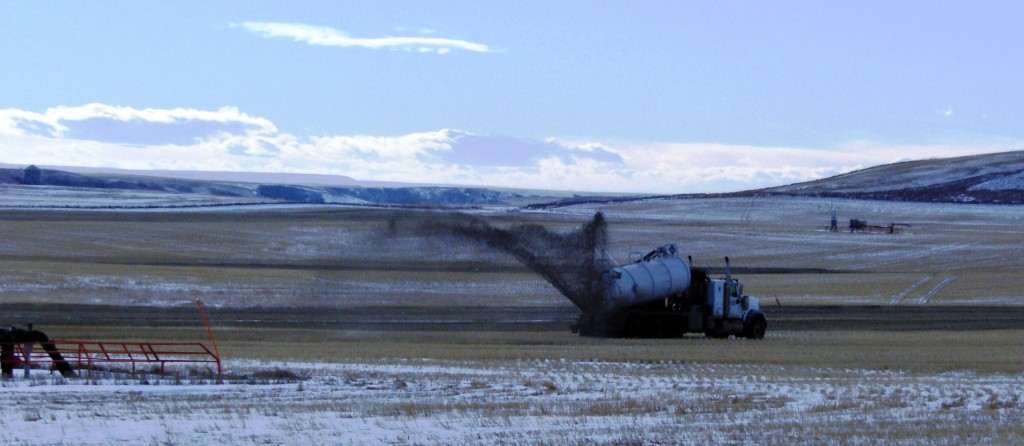
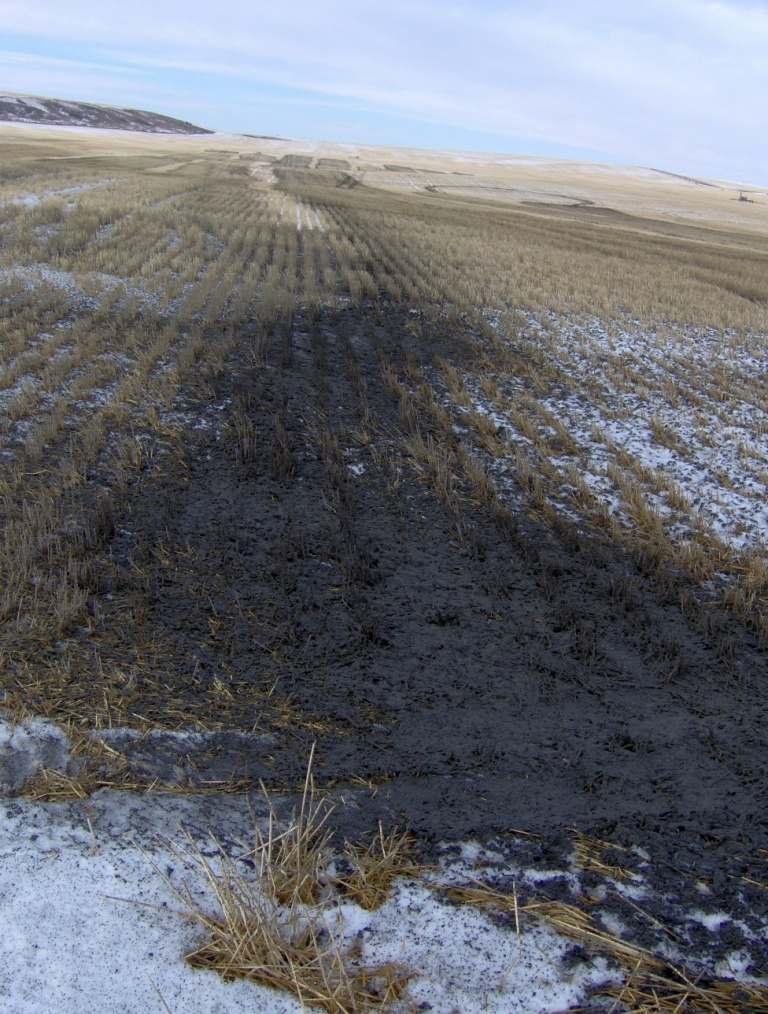
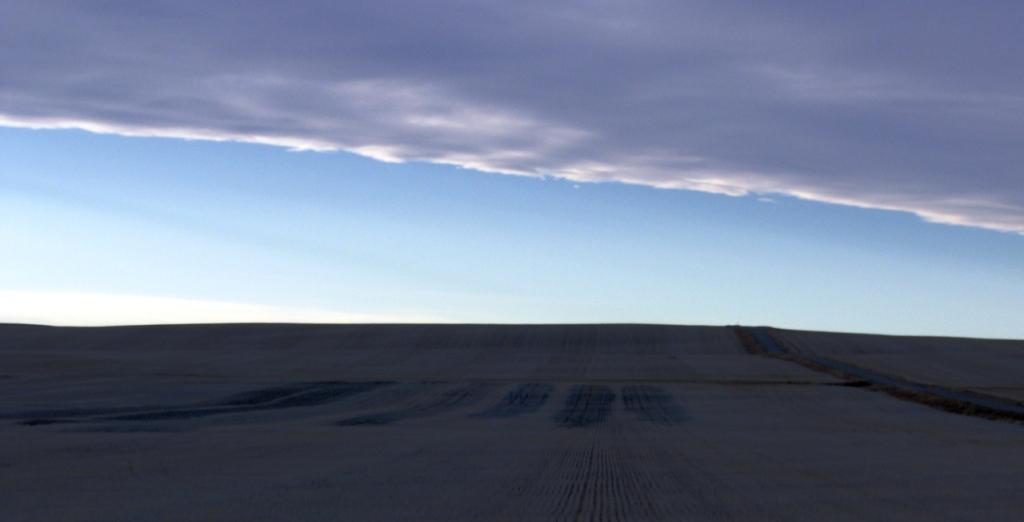
Another company dumping their waste in Alberta NW of Calgary:

Some companies dump their waste on Alberta public roads while the regulator is busy looking the other way or doing the hanky panky:
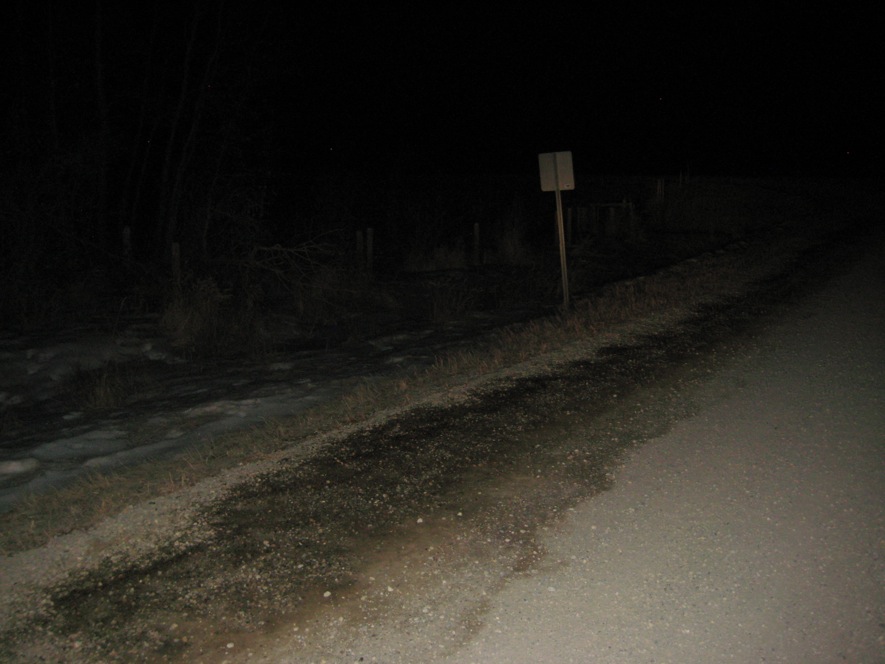
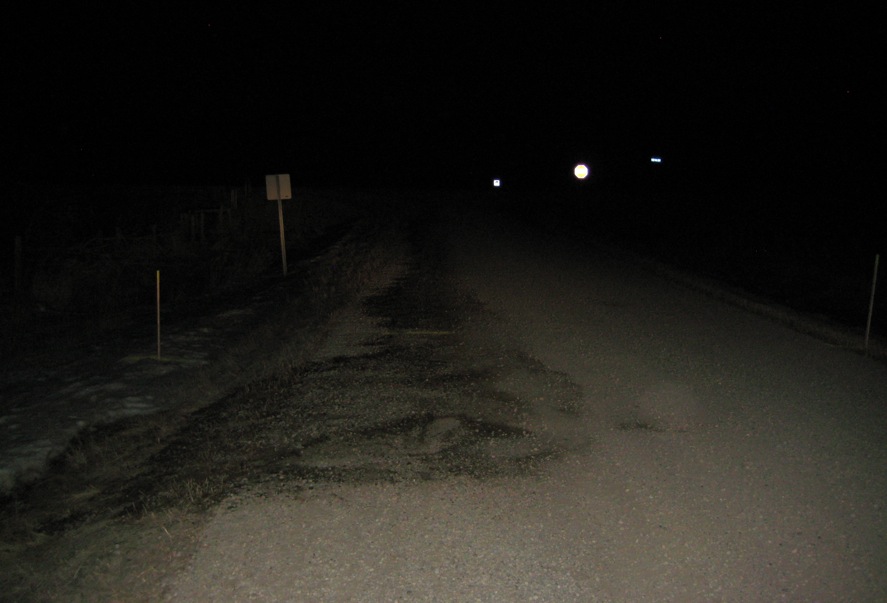
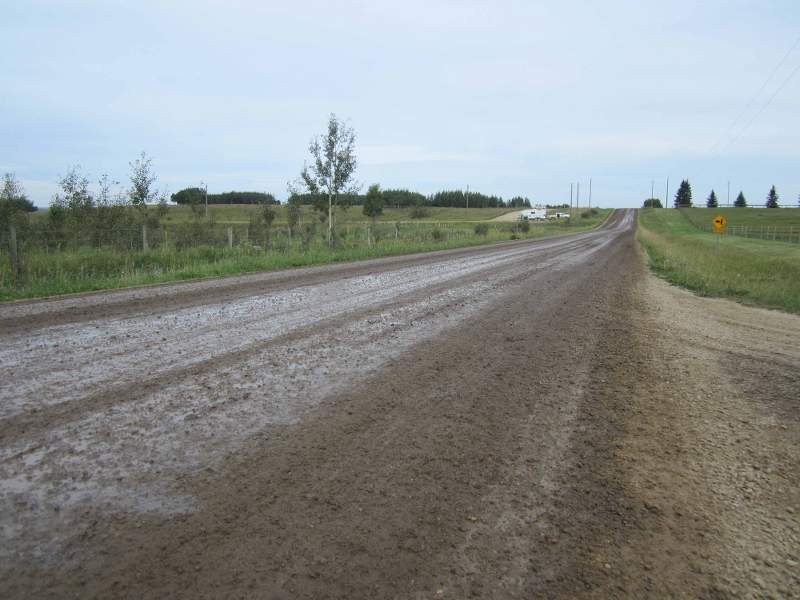
Oilfield waste piling high near Didsbury, Alberta, another potential source of contamination into the Rosebud River:
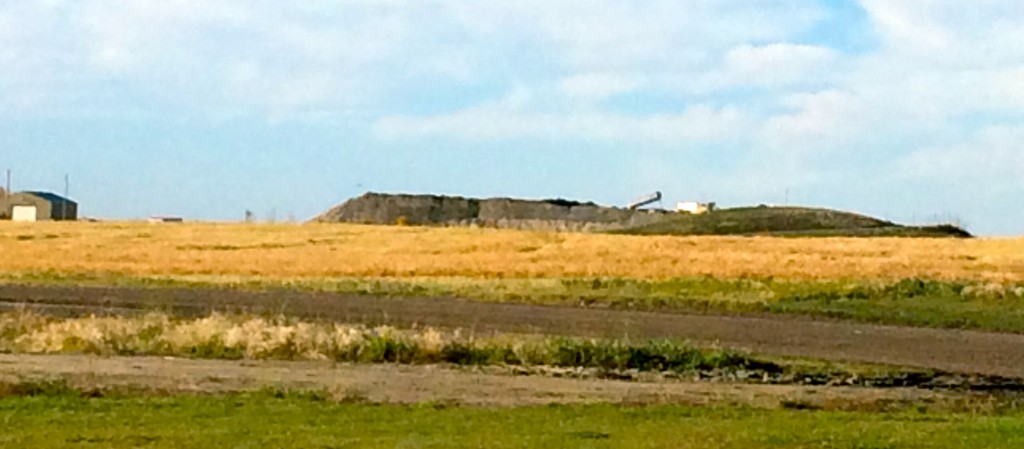
Companies are also allowed to spray their waste on ice roads and leases in the muskeg, of course, ending up polluting it for fish, wildlife, trappers, Indigenous communities, etc.
2013: Integrated Water Technologies Inc. seeks to use fracking waste on roads, sidewalks
2021: New York Senate Passes Hoylman Bill to Ban the Use of Fracking Byproducts as Highway De-Icing Agents
